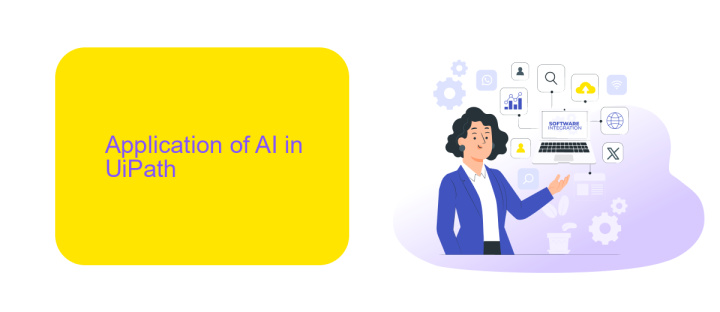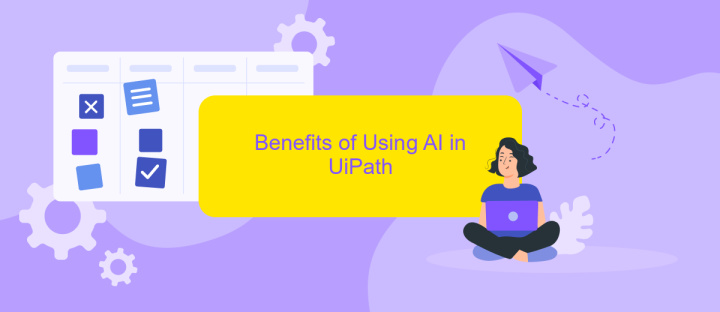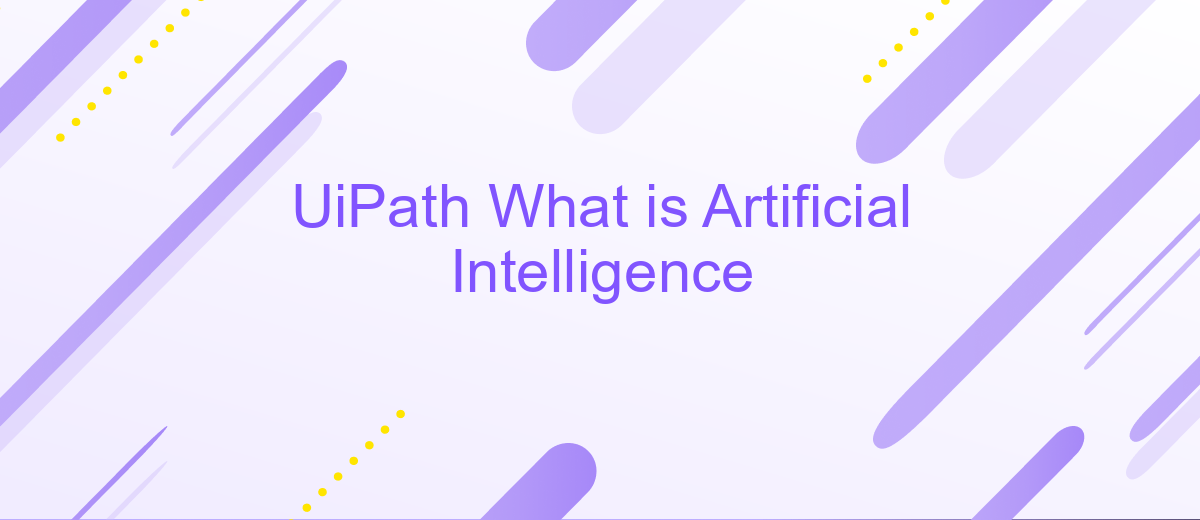UiPath What is Artificial Intelligence
Artificial Intelligence (AI) is revolutionizing the way we interact with technology, and UiPath is at the forefront of this transformation. By leveraging AI, UiPath enhances automation processes, making them smarter and more efficient. This article delves into the fundamentals of AI, its applications within UiPath, and how it is reshaping industries by enabling intelligent automation solutions.
Introduction to Artificial Intelligence
Artificial Intelligence (AI) is a transformative technology that enables machines to perform tasks that typically require human intelligence. These tasks include learning from experience, understanding natural language, recognizing patterns, and making decisions. AI is increasingly integrated into various industries, enhancing efficiency and creating new opportunities.
- Machine Learning: Enables systems to learn and improve from experience without being explicitly programmed.
- Natural Language Processing: Allows machines to understand and respond to human language.
- Computer Vision: Enables machines to interpret and make decisions based on visual data.
- Robotics: Integrates AI into physical machines to perform complex tasks autonomously.
Integrating AI into business processes can be streamlined using platforms like ApiX-Drive, which facilitates seamless integration between various applications and services. By automating data transfer and synchronization, ApiX-Drive helps businesses leverage AI capabilities without the need for extensive technical expertise, thus driving innovation and efficiency.
Application of AI in UiPath

Artificial Intelligence (AI) significantly enhances the capabilities of UiPath, a leading Robotic Process Automation (RPA) platform. AI-driven features such as natural language processing (NLP), machine learning (ML), and computer vision empower UiPath to automate complex tasks that require human-like understanding and decision-making. For instance, AI enables the extraction of unstructured data from documents, allowing bots to process invoices, contracts, and emails efficiently. This integration of AI not only improves accuracy but also reduces the time required for manual data entry and analysis.
Moreover, UiPath leverages AI to streamline integration processes with various applications and services. One notable service is ApiX-Drive, which facilitates seamless integrations by connecting UiPath with numerous third-party applications. ApiX-Drive's user-friendly interface and robust API capabilities allow users to automate workflows without extensive coding knowledge. By utilizing AI and services like ApiX-Drive, UiPath ensures that businesses can achieve higher levels of automation, thus enhancing productivity and operational efficiency.
Benefits of Using AI in UiPath

Integrating Artificial Intelligence (AI) into UiPath significantly enhances automation capabilities, making processes more efficient and intelligent. AI-driven automation can handle complex tasks, reduce human error, and provide insightful data analysis, transforming how businesses operate.
- Improved Efficiency: AI algorithms can process vast amounts of data quickly, optimizing workflows and reducing the time required for repetitive tasks.
- Enhanced Accuracy: By minimizing human intervention, AI reduces the risk of errors, ensuring higher precision in task execution.
- Scalability: AI allows businesses to scale their automation efforts effortlessly, adapting to growing demands without significant manual adjustments.
- Data-Driven Insights: AI can analyze patterns and trends in data, providing valuable insights that help in strategic decision-making.
- Seamless Integration: Tools like ApiX-Drive facilitate easy integration of AI with existing systems, ensuring smooth and efficient workflow management.
By leveraging AI in UiPath, organizations can achieve greater operational efficiency, accuracy, and scalability. The integration of AI not only streamlines processes but also empowers businesses with actionable insights, driving innovation and growth.
Challenges and Considerations

Implementing Artificial Intelligence (AI) in UiPath automation comes with its own set of challenges and considerations. One of the primary concerns is ensuring the accuracy and reliability of AI models. These models need to be trained on extensive datasets to perform optimally, and even then, they may encounter issues with data variability and bias.
Another significant challenge is the integration of AI with existing systems. Seamless integration requires robust APIs and middleware to ensure that AI components can communicate effectively with other software. This is where services like ApiX-Drive become invaluable, as they facilitate the integration process, making it easier to connect various applications and data sources.
- Ensuring data privacy and security during AI implementation.
- Managing the scalability of AI solutions as business needs grow.
- Addressing ethical considerations and potential biases in AI algorithms.
- Maintaining continuous monitoring and updating of AI models.
In summary, while AI offers significant advantages for UiPath automation, it is crucial to address these challenges proactively. Leveraging integration services like ApiX-Drive can streamline the process, ensuring a smoother and more efficient AI deployment.
Future of AI in UiPath
The future of AI in UiPath is poised to revolutionize the way businesses automate their processes. With advancements in machine learning and natural language processing, UiPath aims to enhance its automation capabilities, making them more intuitive and user-friendly. The integration of AI will allow UiPath to handle more complex tasks, reduce human intervention, and improve overall efficiency. By leveraging AI, UiPath can provide more accurate data analysis, predictive insights, and adaptive automation solutions that evolve with business needs.
Furthermore, UiPath is focusing on seamless integration with other services to streamline workflows. One such service is ApiX-Drive, which facilitates easy integration between various applications and platforms. By utilizing ApiX-Drive, UiPath can offer businesses a more cohesive and interconnected automation environment. This will enable organizations to automate end-to-end processes, from data entry to customer interactions, with minimal setup and maximum efficiency. As AI technology continues to evolve, UiPath's commitment to integrating these advancements ensures that businesses remain at the forefront of innovation and productivity.


FAQ
What is Artificial Intelligence (AI)?
How does AI integrate with UiPath?
What are the benefits of using AI in automation?
How can I start implementing AI in my business processes?
Is it difficult to set up AI-driven automation?
Do you want to achieve your goals in business, career and life faster and better? Do it with ApiX-Drive – a tool that will remove a significant part of the routine from workflows and free up additional time to achieve your goals. Test the capabilities of Apix-Drive for free – see for yourself the effectiveness of the tool.

